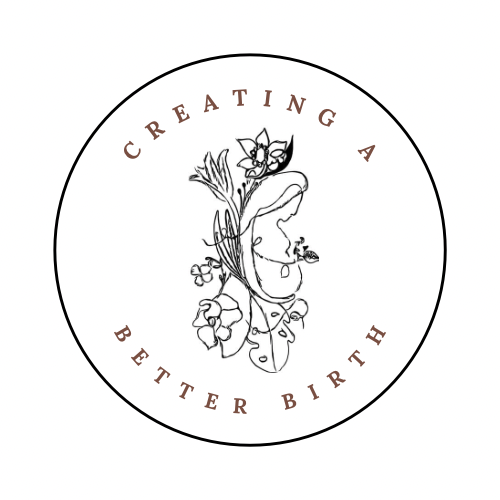
Being skeptical about the foods you consume during pregnancy is natural. While there are certain foods that you know you shouldn’t eat, there are other foods that could be categorized as “a gray area”. Pineapple is one of those foods.
Between old wives tales, the stigma surrounding the fruit, and the many myths about it’s side effects in pregnancy, you may wonder whether it’s safe to eat while pregnant. Let’s dive in.
Can Pineapple Induce Early Labor?
Pineapple contains the enzyme bromelain, which has the ability to break down proteins and cause abnormal bleeding leading to early labor or miscarriage. Notice the word “ability”. Just because it COULD, doesn’t mean it WILL. You would have to consume a lot all at once for pineapple to have this affect, but we will discuss that in a moment. In some countries, it is completely taboo to eat pineapple during pregnancy, especially in the first trimester. But is pineapple actually dangerous?
Unless eaten in large quantities, pineapple itself does not typically stimulate uterine contractions. While it does contain bromelain, the amount needed to begin active labor would be around seven pineapples worth! If you are eating that much, chances are you will end up with more than just uterine contractions. You would most likely end up with vomiting and diarrhea long before uterine contractions would start. That much bromelain would really bother your digestive tract! (Even if you’re not pregnant, please don’t eat that much all at once! >_<)
That being said, eating pineapple in moderation while pregnant is typically safe. If you were concerned about the bromelain content, try canned pineapple instead. The canning process destroys the bromelain in the fruit. However, there is also no benefit to eating canned pineapple as the canning process also kills off all of the other beneficial vitamins that you would get from eating it fresh.
Nutritional Benefits of Pineapple
Pineapple is what I like to refer to as a “powerhouse fruit”. Just one cup contains around 80mg of vitamin C. 80-90mg is the average dose of vitamin C for a person’s daily needs.
Pineapple also contains vitamin B1 (which helps with proper muscle function, healthy nervous system, and heart health), vitamin B6 (which can aid in easing morning sickness), and Folic acid (which helps prevent birth defects).
This tangy fruit is also very high in dietary fiber which can help ease constipation in pregnancy.
We have already discussed that pineapple is high in bromelain. How could that benefit you? Bromelain can help lower high blood pressure and help treat edema, both of these can be beneficial in pregnancy.

What are Possible Risks of Eating It While Pregnant?
- If you know you’re allergic to the fruit, obviously try and avoid it. Symptoms of a pineapple allergy are skin reactions, swelling, or itching in your mouth. Runny nose, congestion, and asthma. Pineapple reactions are similar to the allergic reactions of latex or pollen.
- Pineapple has a high acidic content. The acids in the fruit could make acid reflex and heartburn worse. Try and avoid it if you were already struggling with either of these.
- As discussed above, eating this fruit in large quantities can lead to a stomachache and diarrhea because of its high bromelain content.
- Eating a ton of pineapple all at once can also bother your mouth, causing tenderness or a swollen tongue, cheeks, and lips.
Will Pineapple Help Me Induce Labor?
In some cultures, pineapple is believed to induce labor if you consume enough. Bromelain is said to soften the cervix and help induce labor. There is some truth to this old wives tale, but like I said earlier, you would have to eat a TON all at once to actually help induce labor. There are no actual studies in humans on pineapples affect in or on labor. So you can try pineapple to help stimulate contractions, but it will most likely not have much of an effect on starting real contractions.
In Conclusion
Eating pineapple in pregnancy is typically safe, but you should practice wisdom if it is something you will be eating daily (think around a cup daily). If pineapple is something you crave, your body could be telling you that you need something that the pineapple contains. Talk to your doctor and Midwife about your own special needs regarding the amount you should be eating as well as what your body could be craving inside of the pineapple.
On another note, if you have gestational diabetes, be sure to only eat pineapple in moderation. Pineapple is high in carbs and sugars. Be sure to eat it with a low carb, high protein, or high fiber meal to slow down the glucose absorption. Be sure to also add this to your list of things to ask your doctor or Midwife when you mention adding pineapple to your diet.
Disclaimer: All content and media on the Creating a Better Birth website is created and published online for informational purposes only. It is not intended to be a substitute for professional medical advice and should not be relied on as health or personal advice. Always seek the guidance of a qualified health professional with any questions you may have regarding your health or a medical condition. Never disregard the advice of a medical professional, or delay in seeking it because of something you have read on this Website.
If you think you may have a medical emergency, call your doctor or call emergency services. If you choose to rely on any information provided by Creating a Better Birth, you do so solely at your own risk.
